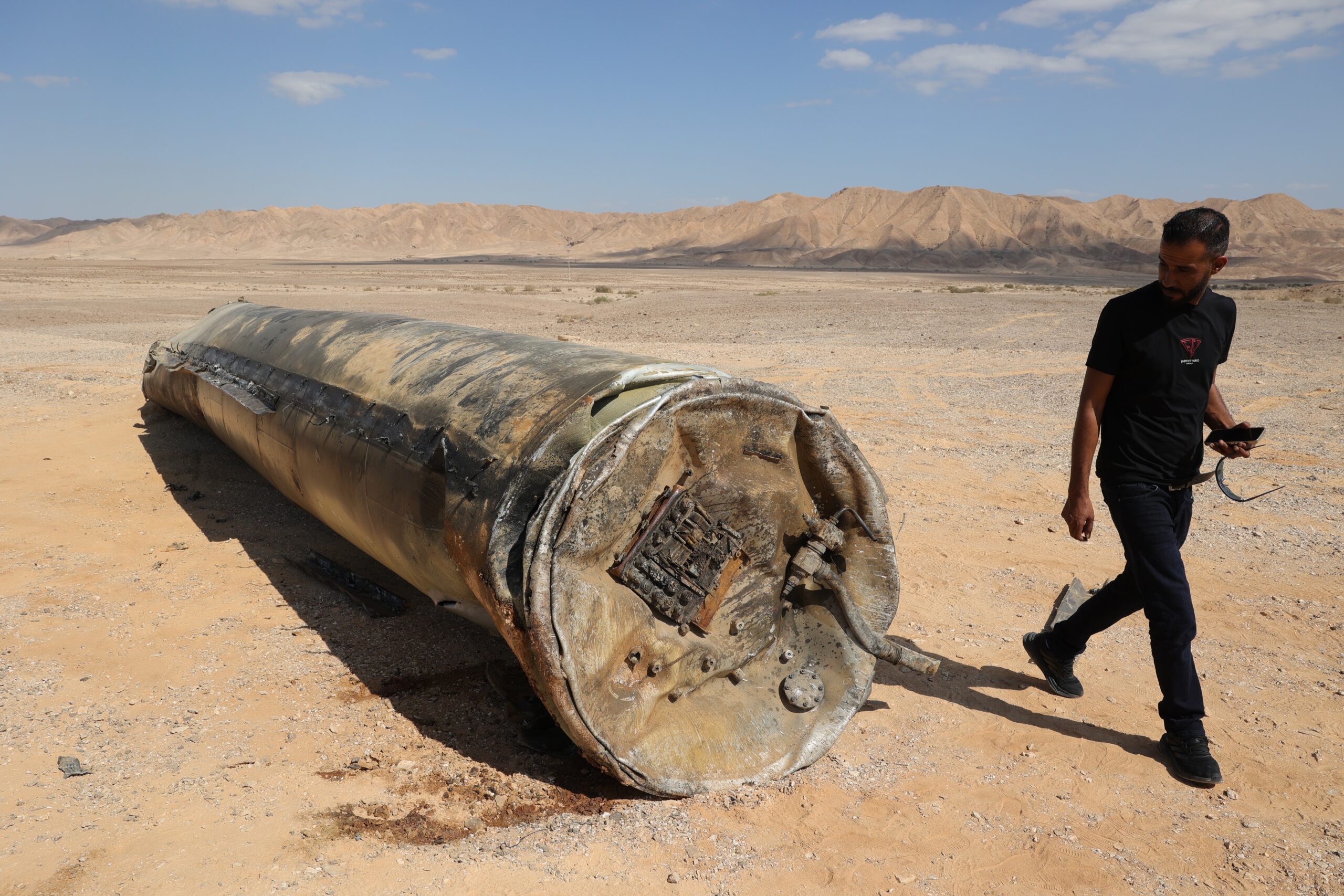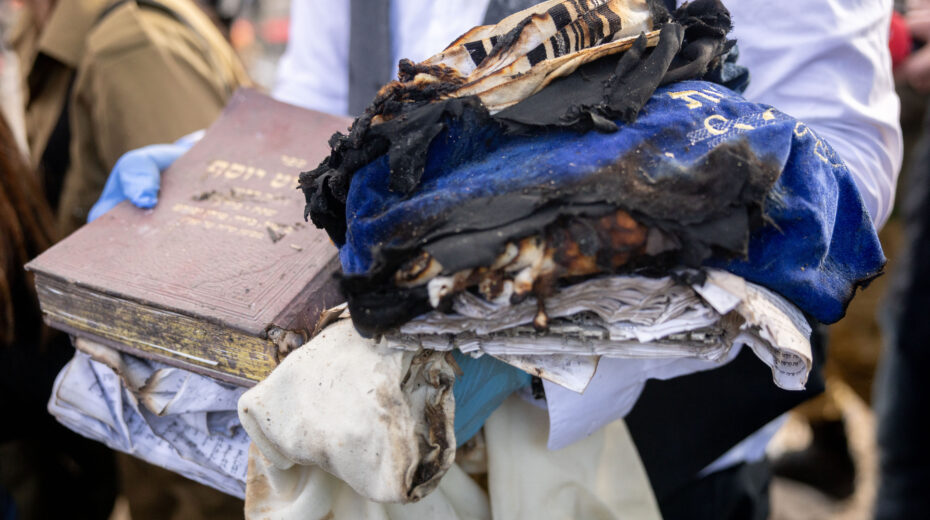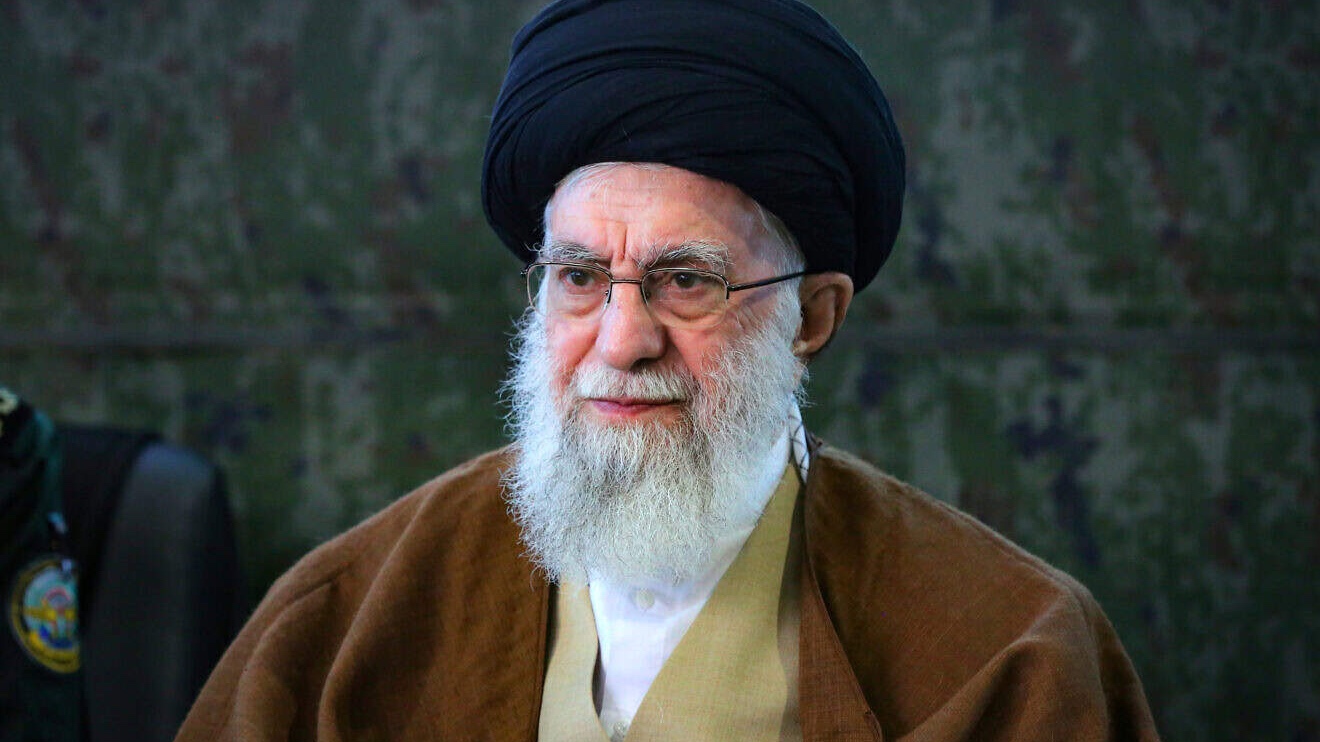It is expected that Israel will respond to the Iranian missile attack within a few days, and that this response will be very harsh and targeted at strategic objectives. The options on the table include Iran’s nuclear facilities and its oil installations.
A senior Israeli official said, “Iran has not learned the lesson from Hamas, Hezbollah, and the Houthis. Now it will be forced to learn this lesson itself.” High-ranking Israeli officials said that the response must end the incident to avoid getting entangled in a prolonged exchange of blows.
The political and security cabinets convened in the evening to discuss the Israeli course of action in an underground bunker in the Jerusalem hills, known as the crisis management center. This was the first cabinet meeting in the bunker since the war began on October 7. There had been criticism about the bunker not being used earlier, with claims that the threat level was not deemed sufficient.
While the cabinet was meeting in the bunker, Defense Minister Yoav Gallant, Chief of Staff Herzi Halevi, and army generals gathered in the so-called “hole” at the Kirya in Tel Aviv, joining the cabinet meeting via secure video conference. As far as is known, the cabinet did not discuss possible response methods, and the issue will be discussed in smaller forums. However, there was agreement that Israel must react very strongly to change the rules of the game.
Iran is threatening Israel with an attack, making it clear that what has been seen so far is not a full-scale war, and that Iran will respond forcefully if Israel makes a mistake and attacks Iran.
The Iranian missile attack involved around 200 ballistic missiles fired at a range of targets in Israel: Mossad headquarters, air force bases, and other IDF installations.

The Israeli air defense system was able to successfully intercept most of the attacks while also supporting the international coalition led by the United States. The British, French, Jordanians, and other Gulf states participated in the interception effort. As on April 13, a similar interception was carried out by the US Navy in Doha, the capital of Qatar.
The Iranian attack caused no fatalities but did result in damage from missile and interceptor fragments. Among other things, a Chabad school in Gedera was heavily damaged, and many houses were affected by hits in Hod Hasharon. A Turkish restaurant in northern Tel Aviv was also damaged by an impact. A Gazan working illegally in Jericho was killed by an Iranian missile. It is also known that Israeli military bases were damaged, although not significantly. A 68-year-old citizen from Afula died of heart failure due to the fear triggered by the alarm during the Iranian missile attack.
The United States, the United Kingdom, France, Germany, and several other countries have strongly condemned the Iranian attack and supported Israel’s right to self-defense. Prime Minister Netanyahu is expected to speak with US President Joe Biden. Israel wants to coordinate its response as closely as possible with the Americans and would welcome US involvement to make Iran pay a heavy price. The Americans had already spoken of the “serious consequences” that an Iranian attack on Israel would have, strongly suggesting that they would support an attack on Iran.
Biden followed the Iranian attack overnight and the US-led interception effort.
US National Security Advisor Jake Sullivan stated: “We have said that the attack will have ‘serious consequences’—and it will.”
“We will consult with the Israelis on the response and how to prevent further attacks. We managed to help Israel, and no one was killed. From here, we will see what the next step is.”
The Pentagon stated: “We fully support Israel’s right to defend itself after the massive Iranian attack.”
The Israeli army spokesman, Daniel Hagari, told foreign media that Iran had launched a large-scale attack with more than 180 ballistic missiles directly from Iranian territory against the state of Israel. Some of the missiles landed in the center of the country, others in the south. Most of the fired missiles were intercepted by Israel and a defense coalition led by the United States. “This will have serious and offensive consequences. We will decide how to respond according to the instructions of the Israeli government. And its allies have been attacking Israel since October 7,” said Hagari.
“Iran’s attack is a severe and dangerous escalation. There will be consequences…We will respond wherever, whenever and however we choose, in accordance with the directive of the government of Israel.”
Watch IDF Spokesperson RAdm. Daniel Hagari regarding Iran’s large-scale… pic.twitter.com/A8pyC7eawI
— Israel Defense Forces (@IDF) October 1, 2024
In Israel, ministers and Knesset members are increasingly urging Netanyahu to take advantage of the opportunity and destroy Iran’s nuclear facilities once and for all.
French President Emmanuel Macron sharply condemned the Iranian attack. He confirmed that France had activated its regional military assets to repel the attack. Macron called on Hezbollah to stop its terrorist attacks against Israel and urged Israel to quickly end its military operation in Lebanon while respecting Lebanon’s sovereignty and territorial integrity. Macron instructed his foreign minister to return to Lebanon as soon as possible to advance a ceasefire initiative.
British Prime Minister Keir Starmer, Foreign Secretary David Lammy, and Defense Secretary John Healy issued sharp condemnations of the Iranian attack on Israel on X (formerly Twitter) last night. In his condemnation, Defense Secretary Healy noted that “British forces have done their part tonight to prevent further escalation in the Middle East.” Healy also thanked “all British personnel for their bravery and professionalism.”
I condemn Iran’s attack on Israel in the strongest terms. Today I warned Iran against taking action that could push the region further towards the brink. A cycle of escalation is in no one’s interest.
— David Lammy (@DavidLammy) October 1, 2024
British Prime Minister Keir Starmer released a video titled “I condemn the Iranian attack on Israel tonight in the strongest possible terms.”
I completely condemn Iran’s attack on Israel this evening. pic.twitter.com/cj2R6o5Lfd
— Keir Starmer (@Keir_Starmer) October 1, 2024
Defense Secretary John Healy issued a statement titled “I condemn the Iranian attack on Israel in the strongest possible terms,” stating: “I condemn the Iranian attack on Israel in the strongest possible terms. British forces have done their part tonight to prevent further escalation in the Middle East. I want to thank all the British soldiers involved in the operation for their courage and professionalism. The United Kingdom fully supports Israel’s right to defend itself and its citizens against threats.”











